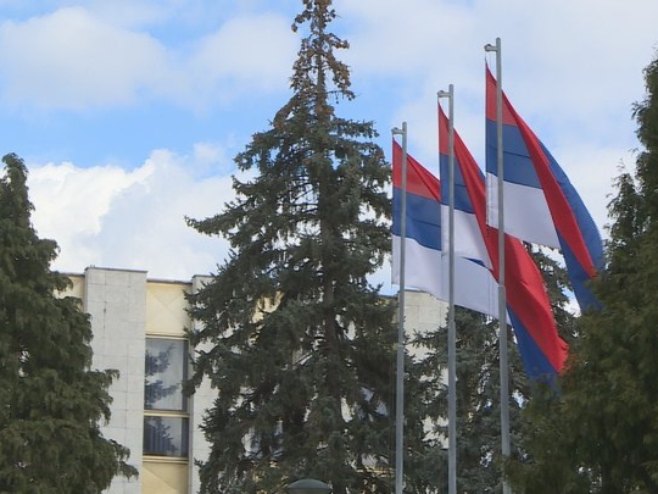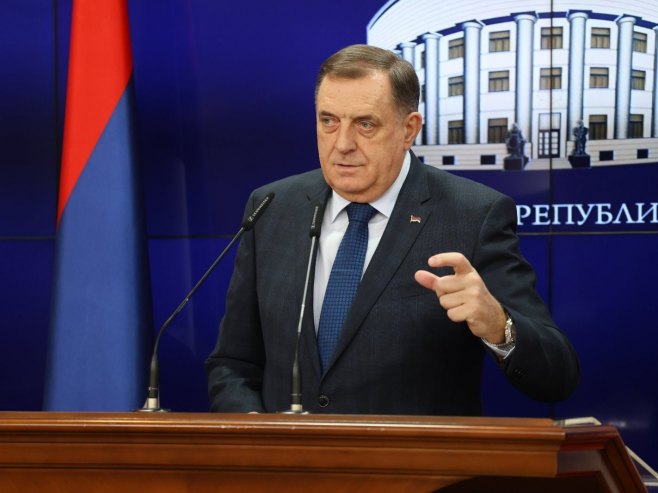Note: Proper reading and understanding of this text require adequate prior knowledge in the field of international treaty law and the legal nature of the Dayton Peace Agreement.
Respecting the position of the European Commission for Democracy through Law (Venice Commission) No. 337/2005, adopted at its 63rd session held on June 10 and 11, 2005, in response to the question posed by the European Court of Human Rights: “Are the annexes of the General Framework Agreement subject to international law?”, the Venice Commission concluded that the annexes “must be considered international treaties. Their character and interpretation are, therefore, governed by international law, particularly the Vienna Convention on the Law of Treaties.”
Emphasizing that the Federal Republic of Yugoslavia represented Republika Srpska through a power of attorney in the process of concluding the General Framework Agreement for Peace in Bosnia and Herzegovina (hereinafter: the Dayton Peace Agreement), as stated in its preamble, and that Republika Srpska was a party to the negotiations in which the so-called Geneva and New York Principles were established as the foundation of Annex 4, i.e., the Dayton Peace Agreement itself.
Emphasizing that Republika Srpska is a contracting party to all annexes of the Dayton Peace Agreement, including Annex 4 and Annex 10, and that it has repeatedly, through its official acts, pointed out material violations of their provisions—particularly through the Conclusions regarding the Information on the Collapse of the Legal Order in Bosnia and Herzegovina through the Violation of the Dayton Peace Agreement, the Conclusions regarding the Information on the Consideration of the Current Security and Political Situation in the World from the Perspective of its Repercussions on Republika Srpska, the Conclusions regarding the Assessment of the Work of the High Representative and the Implementation of Annex X of the General Framework Agreement for Peace in Bosnia and Herzegovina during the Period of Discussions on the Appointment of a New High Representative, Conclusion No. 01-1407/09, Conclusion No. 01-1406/09, Conclusions 01-610/10, and others—whereby, as a contracting party, Republika Srpska has actively protested against violations of the annexes and the Dayton Peace Agreement as a whole.
In this context, we particularly emphasize that the Office of the High Representative (OHR) and the Constitutional Court of Bosnia and Herzegovina, which, under the Dayton Peace Agreement, are authorized to regulate its implementation in a specific manner, have violated their obligations to act in good faith (bona fides). As a result, their disputed acts cannot be considered legally valid ab initio. These acts contradict the principles of international law developed through the jurisprudence of the Permanent Court of Arbitration (1910) and the International Court of Justice in cases such as United Kingdom v. Norway (1951), Gabcíkovo-Nagymaros (1997), and others, and therefore, they cannot be binding upon a conscientious contracting party.
We recall that the prescribed reaction from the other contracting parties, in the form of a protest against the claims made in the acts of the National Assembly of Republika Srpska, was absent, despite their public nature being in accordance with the requirements of Articles 65 and 67 of the Vienna Convention on the Law of Treaties.
Furthermore, within this framework, we adopted the Law on the Non-Application of the Decision of the High Representative Imposing the Law on the Amendment to the Criminal Code of Bosnia and Herzegovina (Official Gazette of Republika Srpska, No. 89/21), which stipulates:
“The Decision of the High Representative imposing the Law on the Amendment to the Criminal Code of Bosnia and Herzegovina, which amends Article 145a of the Criminal Code of Bosnia and Herzegovina (‘Official Gazette of BiH’, Nos. 3/03, 32/03, 37/03, 54/04, 61/04, 30/05, 53/06, 55/06, 32/07, 8/10, 47/14, 22/15, 40/15, and 35/18) by adding new paragraphs 2 through 6 after paragraph 1, and modifying and renumbering the existing paragraph 2 as the new paragraph 7, shall not apply within the territory of Republika Srpska.”
Additionally, we adopted the Law on the Amendment to the Law on the Publication of Laws and Other Regulations of Republika Srpska (Official Gazette of Republika Srpska, No. 60/23), which, in accordance with Article 60 of the Vienna Convention on the Law of Treaties, temporarily suspends the application of Annex 10.
Moreover, the Law on the Non-Application of Decisions of the Constitutional Court of Bosnia and Herzegovina (Official Gazette of Republika Srpska, No. 60/23) was also enacted, stipulating:
Article 1
The decision amending the Rules of the Constitutional Court and the decisions of the Constitutional Court of Bosnia and Herzegovina adopted following these amendments to the Rules of the Constitutional Court of Bosnia and Herzegovina shall not be applied or enforced within the territory of Republika Srpska.
Article 2
(1) The decisions referred to in Article 1 of this law shall not be applied or enforced within the territory of Republika Srpska until the Parliamentary Assembly of Bosnia and Herzegovina adopts the Law on the Constitutional Court of Bosnia and Herzegovina.
(2) Until the adoption of the law referred to in paragraph 1 of this article, the provisions of the law regulating the publication of laws and other regulations of Republika Srpska shall be temporarily suspended in the part relating to regulations and other acts adopted by the Constitutional Court of Bosnia and Herzegovina.
This measure also aligns with one of the 14 priorities of the European Union and, in accordance with Article 60 of the Vienna Convention on the Law of Treaties, temporarily suspends the application of Article 4, paragraph (4) of Annex 4.
No reaction in the form of a protest, as required by the provisions of the Vienna Convention on the Law of Treaties, was issued by the other contracting parties regarding the aforementioned publicly announced laws. As a result, these acts have gained international legal acceptance.
In this light, the Conclusions of the National Assembly of Republika Srpska Nos. 02/1-021-1562/24, 02/1-021-1563/24, and 02/1-021-1564/24—adopted at its 16th special session held on December 24 and 25, 2024—should be understood as a logical and continuous legal course in the process of peaceful dispute resolution. The primary recipient of these conclusions, as well as this communication, is the European Union in its capacity as a witness to the Dayton Peace Agreement.
For all the reasons stated above, we consider that the Order of Mr. Christian Schmidt, which declares that the Conclusions of the National Assembly of Republika Srpska Nos. 02/1-021-1562/24, 02/1-021-1563/24, and 02/1-021-1564/24—adopted at its 16th special session held on December 24 and 25, 2024—violate the obligations and responsibilities of Republika Srpska under Annex 4 and Annex 10 of the General Framework Agreement for Peace in Bosnia and Herzegovina, and which prohibits the implementation of these Conclusions, is an act that is not based on the provisions of the Vienna Convention on the Law of Treaties.
As such, it has no legal effect and does not constitute an appropriate instrument for the peaceful resolution of a legal dispute.
The attempt to legally equate this Order with the previously imposed disputed law—under whose provisions proceedings are being conducted against the President of Republika Srpska—represents a form of intimidation of elected representatives and demonstrates either a lack of understanding or a deliberate deviation from legal norms and standards. This is characteristic of totalitarian regimes, which historically stand behind some of the darkest periods of world wars and crimes that began as a result of violations of international law.
Furthermore, the text of Annex 10 clearly shows that the High Representative does not have the authority to issue orders or impose prohibitions. All such actions by the High Representative can be deemed ultra vires and as violations of Annex 10.
Examining Article 5 of Annex 10—Agreement on Civilian Implementation of the Peace Settlement—it is evident that “the High Representative has the final authority in interpreting this Agreement on Civilian Implementation of the Peace Settlement,” but not the entire General Framework Agreement for Peace in Bosnia and Herzegovina and its annexes, including Annex 4.
Point XI/2 of the Conclusions of the Peace Implementation Council, adopted at the meeting held in Bonn on December 9 and 10, 1997 (the so-called Bonn Powers), contains nothing that would provide a legal basis for issuing orders that effectively annul acts of the National Assembly of Republika Srpska adopted through a democratic procedure.
Since the disputed Order explicitly refers to Point XI/2 of the Conclusions of the Peace Implementation Council from the Bonn meeting, it is evident that this Order was issued without a valid legal basis and that its legal effect can be challenged ab initio. The Parliamentary Assembly of the Council of Europe, in its 2004 resolution, emphasizes that “the scope of the OHR is such that, in every sense, it represents a supreme institution with powers in Bosnia and Herzegovina. In this regard, the Assembly considers it incompatible with democratic principles for the OHR to be able to make executive decisions without bearing responsibility for them, without the obligation to justify their validity, and without any legal remedy.”
The Venice Commission, in its study on the powers of the High Representative, highlights that “the democratic principle of the sovereignty of the people requires that laws be adopted by a body elected by the people. Article 3 of the (First) Protocol to the European Convention on Human Rights requires that the legislative body be elected by the people, and this right is deprived of its substance if laws are adopted by another body.”
Moreover, the decisions of the High Representative are not subject to appeal.
We do not wish to miss the opportunity to emphasize that Mr. Christian Schmidt has not received authorization from the United Nations Security Council to exercise powers under Chapter VII of the United Nations Charter and, as such, cannot invoke the already contentious so-called Bonn Powers.
The statement issued by the Embassy of the United States in Bosnia and Herzegovina via the X platform is, in a formal sense, acknowledged as an intervention by a witness to the Dayton Agreement. However, in terms of content, it is declaratory in nature, does not constitute a protest, and does not contribute to resolving the legal dispute described in the preceding paragraphs.
In our understanding, the statement expresses the position of a witness to the Dayton Peace Agreement, affirming that a dispute exists regarding the legal matters that are, among other things, the subject of the Conclusions and the Order.
We reiterate our readiness to negotiate the elimination of all forms and methods of violations of the Dayton Peace Agreement and its annexes, as we have pointed out in previous acts of the National Assembly of Republika Srpska, in order to restore the full implementation of the Dayton Peace Agreement, to which we remain entirely committed and permanently dedicated.
Once again, we emphasize the importance of dialogue and communication as opposed to threats, orders, and ultimatums, which only further escalate the situation and lead to the radicalization of divisions and conflicts.









